
Viewpoints | Aug 23,2025
Africa Insurance, one of the oldest insurance companies in the country, has amassed 45.7 million Br in net profit in the last fiscal year, rebounding from the loss it incurred the previous year. Two years ago, the company registered a loss of 2.8 million Br, a drastic fall from the 59.1 million Br it made in profit the preceding year.
The earnings per share, the profit divided by the number of shares owned by the 307 shareholders, has also picked up markedly to 254 Br. Two years ago, earnings per share plummeted to a loss of 16 Br.
Dawit Aragaw, a chairperson of the board of directors of Africa, whose employees own 85pc of the company's shares, praises the persistence of the shareholders for the positive performance of the company.
"We wish to convey special recognition to our shareholders for their persistent investment and backing," he said.
Analysis of the profit and loss account of Africa shows that the main impetus for the improved performance is a massive decrease in claims. It considerably contributed to reversing the loss of the preceding year.
During the reporting period, the firm paid 395.7 million Br in claims, which was 16pc lower than the value it paid the previous year.
This shows that Africa must have instituted good risk management, for which the management should be appreciated, according to Abdulmenan Mohammed, a financial statement analyst.
The management had exerted different efforts to control claims efficiently, according to Kiros Jirane, CEO of Africa for the past 24-plus years.
"We identified a loss-making class of business and made a marginal premium adjustment," said Kiros.
Despite a huge improvement in the areas of profit and claims, Africa made minimal headway in the performance of general insurance business. Its net earned premium went up by only two percent to 471.4 million Br.
The insurance business was slow last year due to the weakened economic activity, according to Kiros.
"Especially marine and engineering businesses," said Kiros. "We didn't have much business from those two insurance segments."
Africa earned a commission of 21.6 million Br, a decrease of 23pc, and paid commission expenses of 20.8 million Br, an increase of nine percent. Over the past two years, the commission income of Africa has fallen considerably.
"This should concern the management of Africa," said Abdulmenan.
Kiros explains the commission went down because the firm did not sell insurance policies for megaprojects, which need the backing of reinsurance companies.
Africa reported a mixed performance in investment activities. Interest income declined considerably by 12pc to 34 million Br, while dividend income increased by a marginal rate of one percent to 16.4 million Br, and rental income increased by 11pc to 51.7 million Br.
Interest income slightly declined since the firm used some of the cash to settle payment due on a building it bought, according to Kiros.
Expenses expanded at a reasonable rate in Africa. Staff and general administration spending increased by 11pc to 129 million Br. The firm operates with 34 branches, 19 of which are in the capital. Last year, it hired 33 employees, pushing the total number to 363.
Due to performance improvement, the total assets held by Africa increased significantly, rising by 30pc to 1.4 billion Br. Out of the total assets, 470.2 million Br was maintained in financial instruments, and 180.2 million Br was invested in income-generating property.
These investments account for 46.1pc of the total assets, which is far lower than the preceding year’s figure of 59pc. This reduction could have been caused by an accumulation of massive receivables from reinsurers amounting to 402.6 million Br, according to Abdulmenan.
"This deprived Africa of a significant amount of income that could have been earned from investment activities," he said. "The management should exert effort to collect this money and put it in income-earning activities."
Kiros says the value is not incurred, rather it is retained, until the outstanding claims are settled. Most of the outstanding claims are engineering and construction insurance claims.
"When claims are filed," said Kiros, "we reserve the full amount until it is settled."
Africa increased its liquidity level. Cash and bank balance increased by 55pc to 86.7 million Br. The ratio of cash and bank balances to total assets climbed to six percent from 5.15pc.
The total liability of the company has increased by 36pc to 1.05 billion Br.
The liquidity level of Africa is reasonable, according to Abdulmenan.
The paid-up capital of Africa remained the same at 180.3 million Br. The capital and non-distributable reserves of Africa account for 19.3pc of its total assets.
Africa is a well-capitalised insurance company, so it should use its strong capital base to generate more income, according to the expert.
Africa's peer firms with the same year of establishment — United, Awash and Nile — shored up their paid-up capital to 528.6 million Br, 436.2 million Br and 448 million Br, respectively. Awash netted 209.8 million Br in profit, while United and Nile amassed 124.3 million Br and 112.1 million Br in net profit, respectively.
PUBLISHED ON
Dec 12,2020 [ VOL
21 , NO
1076]

Viewpoints | Aug 23,2025

Exclusive Interviews | Jan 05,2020
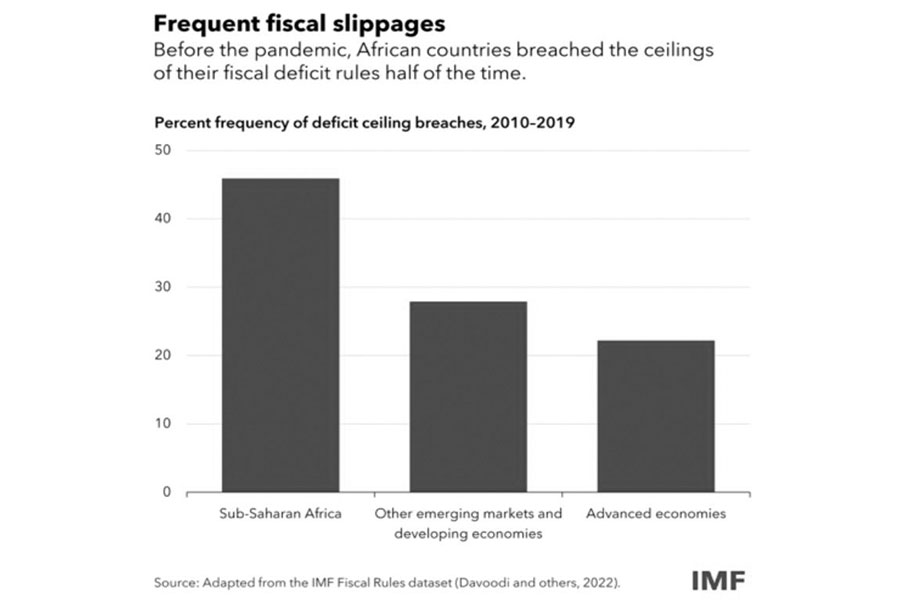
Commentaries | Sep 30,2023
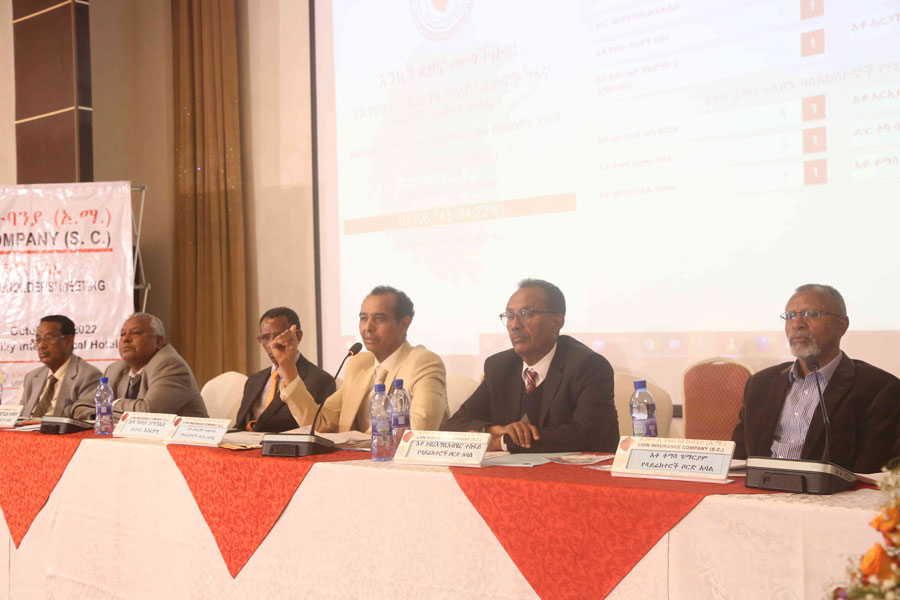
Fortune News | Feb 25,2023

Radar | Dec 25,2021

Fortune News | Jan 01,2022
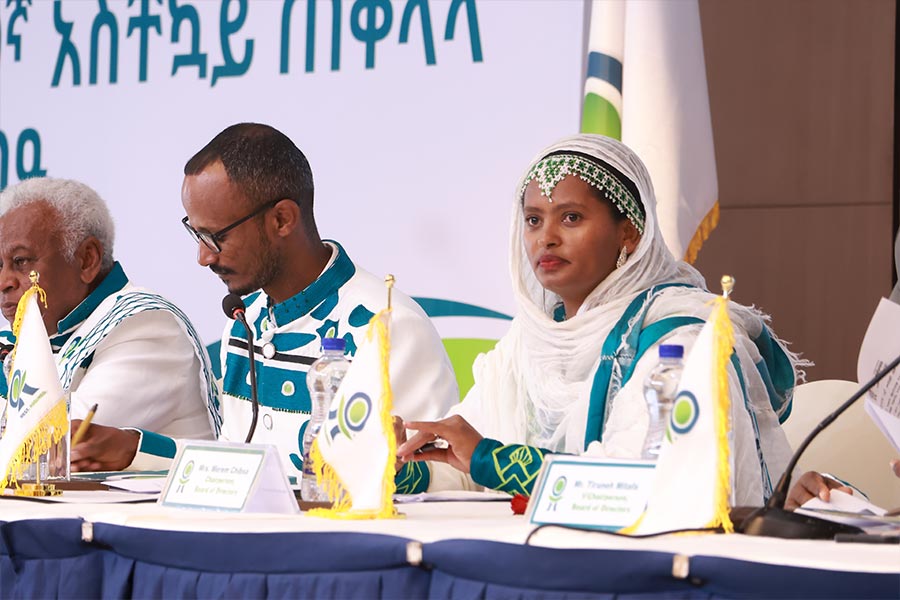
Radar | Dec 02,2023
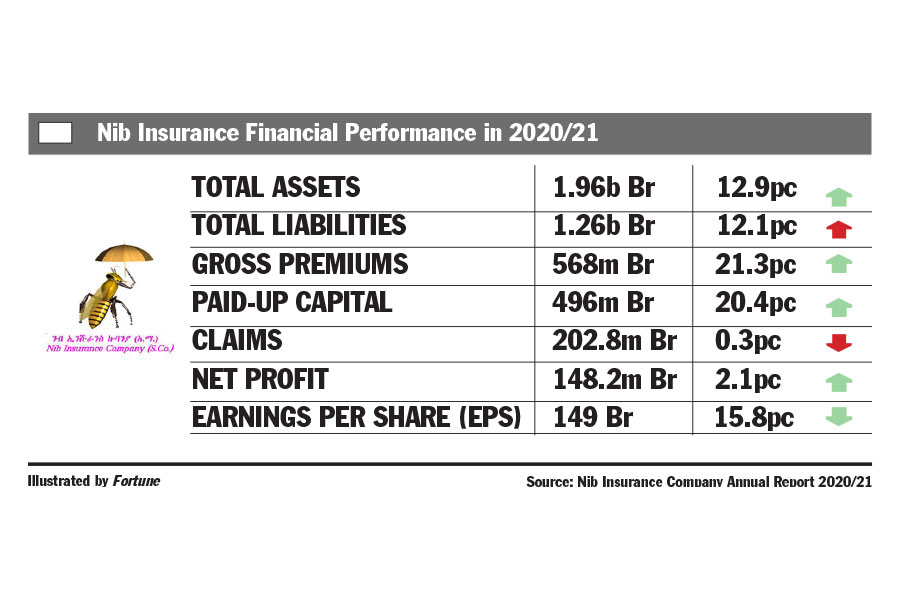
Fortune News | Jan 01,2022

My Opinion | Nov 18,2023
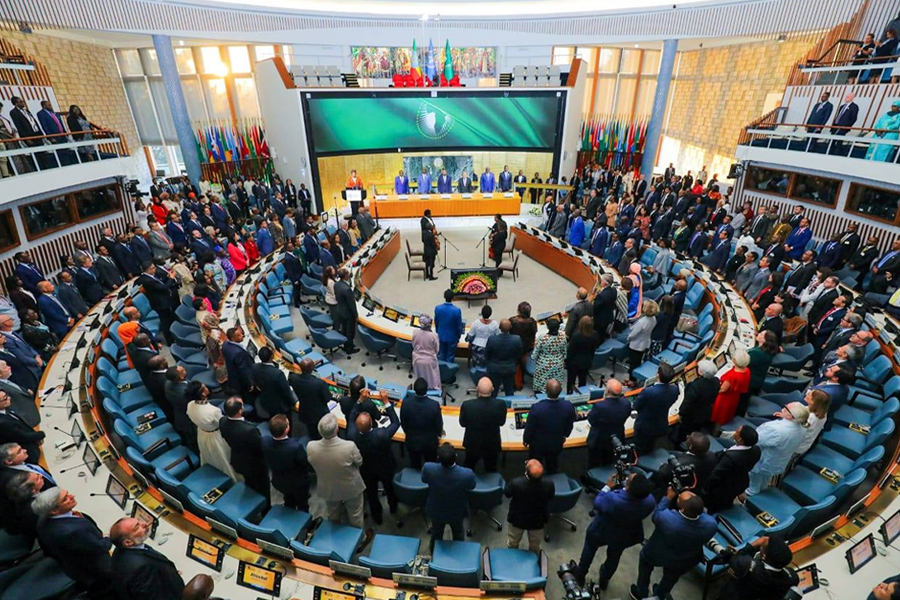
Radar | Oct 27,2024

Dec 22 , 2024 . By TIZITA SHEWAFERAW
Charged with transforming colossal state-owned enterprises into modern and competitiv...

Aug 18 , 2024 . By AKSAH ITALO
Although predictable Yonas Zerihun's job in the ride-hailing service is not immune to...

Jul 28 , 2024 . By TIZITA SHEWAFERAW
Unhabitual, perhaps too many, Samuel Gebreyohannes, 38, used to occasionally enjoy a couple of beers at breakfast. However, he recently swit...

Jul 13 , 2024 . By AKSAH ITALO
Investors who rely on tractors, trucks, and field vehicles for commuting, transporting commodities, and f...

Sep 13 , 2025
At its launch in Nairobi two years ago, the Africa Climate Summit was billed as the f...

Sep 6 , 2025
The dawn of a new year is more than a simple turning of the calendar. It is a moment...

Aug 30 , 2025
For Germans, Otto von Bismarck is first remembered as the architect of a unified nati...

Aug 23 , 2025
Banks have a new obsession. After decades chasing deposits and, more recently, digita...